 Petzlover
Petzlover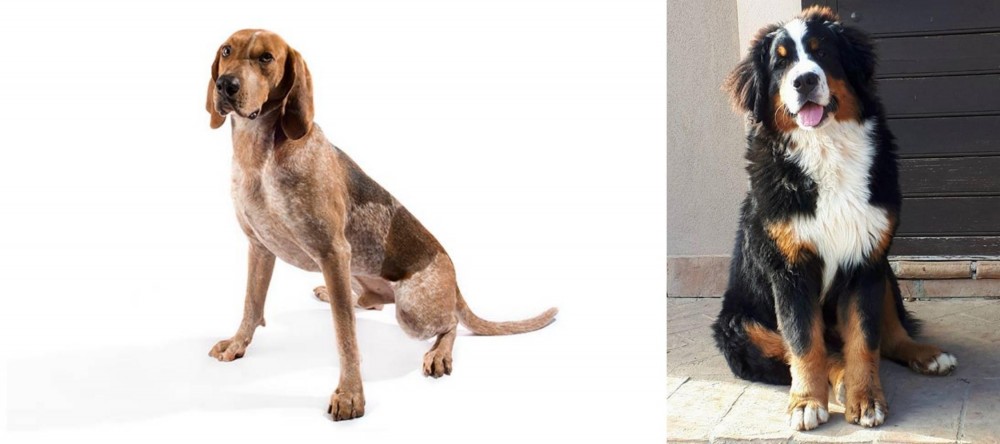 English Coonhound is originated from United States but Mountain Burmese is originated from Myanmar. Both English Coonhound and Mountain Burmese are having almost same height. English Coonhound may weigh 39 kg / 85 pounds lesser than Mountain Burmese. English Coonhound may live 4 years more than Mountain Burmese. Both English Coonhound and Mountain Burmese has almost same litter size. Both English Coonhound and Mountain Burmese requires Low Maintenance.
English Coonhound is originated from United States but Mountain Burmese is originated from Myanmar. Both English Coonhound and Mountain Burmese are having almost same height. English Coonhound may weigh 39 kg / 85 pounds lesser than Mountain Burmese. English Coonhound may live 4 years more than Mountain Burmese. Both English Coonhound and Mountain Burmese has almost same litter size. Both English Coonhound and Mountain Burmese requires Low Maintenance.
 The interesting thing about the English Coonhound is that he originated in the United States, in the southern states. It is also called the American English Coonhound and recognized as such by the AKC. Its ancestry however is British coming from the hunting hounds- the Foxhounds- that were brought to the United States from England in the 17th and 18th centuries and were the base for the Virginia Hounds. These hounds came from dogs that were imported for George Washington, Thomas Walker and Robert Brooke. These Virginia Hounds were then developed into the English Coonhound.
The interesting thing about the English Coonhound is that he originated in the United States, in the southern states. It is also called the American English Coonhound and recognized as such by the AKC. Its ancestry however is British coming from the hunting hounds- the Foxhounds- that were brought to the United States from England in the 17th and 18th centuries and were the base for the Virginia Hounds. These hounds came from dogs that were imported for George Washington, Thomas Walker and Robert Brooke. These Virginia Hounds were then developed into the English Coonhound.
A dog was needed that could handle the rougher terrain of the United States and hunt American Red Fox and racoons. Interestingly it was England, through the UKC, that first recognized the breed in 1905, labeling it the English Fox and Coonhound. The AKC recognized it in 2011.
Development of this group of hounds continued when the Treeing Walker Coonhound was split off as its own breed in 1945, and the Bluetick Coonhound followed in 1946. The English Coonhound can tree a prey or corner it until the hunter arrives. They hunt in packs or they can work one on one with the hunter. Either way they excel at finding and holding their prey “at bay”.
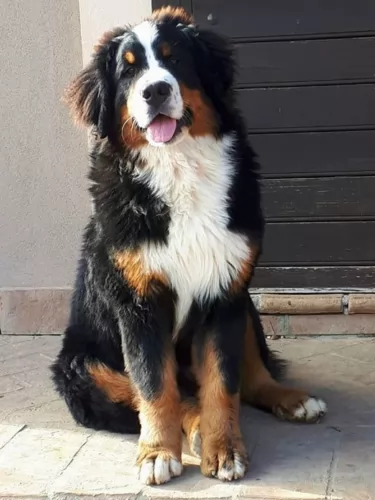 The Burmese Mountain Dog is quite often taken to be the Bernese Mountain Dog, a Swiss farm dog. However, the Burmese Mountain Dog comes not from Switzerland but from Myanmar and Burma. The Burmese was bred to hunt skunks and guard livestock for the northern tribesman of Myanmar. The way they hunted for the aggravating skunks was to hide themselves in the underbrush and wait for the skunk to go by. Their facial markings confuse skunks when they see him in the bush with a black and white face. At the same time, his rust color lets the hunter know he is the dog not the skunk.
The Burmese Mountain Dog is quite often taken to be the Bernese Mountain Dog, a Swiss farm dog. However, the Burmese Mountain Dog comes not from Switzerland but from Myanmar and Burma. The Burmese was bred to hunt skunks and guard livestock for the northern tribesman of Myanmar. The way they hunted for the aggravating skunks was to hide themselves in the underbrush and wait for the skunk to go by. Their facial markings confuse skunks when they see him in the bush with a black and white face. At the same time, his rust color lets the hunter know he is the dog not the skunk.
The Mountain Burmese is an incredible athlete despite the size. They are agile. They are quick. They can climb trees – as many as fifty feet while chasing a skunk. They also make a great companion and love to be a family dog. They are calm and gentle as an adult and great with kids. They are easily trained but remember they can climb trees. However, they do not do well with cats that are black and white or solid black because they confuse them with the skunk prey.
 The English Coonhound is a medium sized dog with a domed head and a deep chest. His build is very athletic. He has dark eye and low-hung ears. The coats of the English Coonhound are extremely variable. For the most part there are three distinct types – the Redtick, the Tricolor and the Bluetick. They can be in any of these categories and have ticking of any color. The most predominate of this group is the Red. So, predominate is the red that the breed is often called the Redtick Coonhound by many.
The English Coonhound is a medium sized dog with a domed head and a deep chest. His build is very athletic. He has dark eye and low-hung ears. The coats of the English Coonhound are extremely variable. For the most part there are three distinct types – the Redtick, the Tricolor and the Bluetick. They can be in any of these categories and have ticking of any color. The most predominate of this group is the Red. So, predominate is the red that the breed is often called the Redtick Coonhound by many.
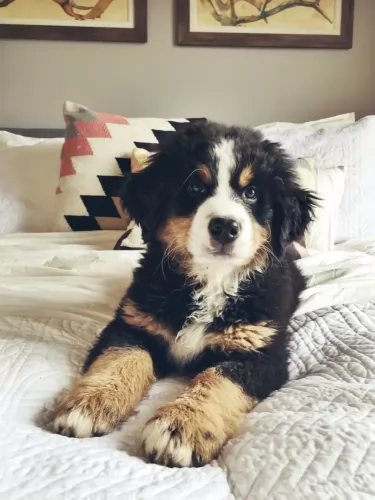 The Mountain Burmese Dog is a large, sturdy, well built and athletic canine. Strong and well balanced, he is agile and athletic when it comes to the work, he has to do in chasing skunks. He has a full body with a large head and dark, oval eyes. The Burmese has triangular ears close to his head and medium in size. With a flat, broad skull the muzzle is straight and strong. They have black noses and a scissors bite, on their muscular, strong neck. With a deep chest and broad back, they have strong ribs. Finally, the tail is bushy, long and hangs low.
The Mountain Burmese Dog is a large, sturdy, well built and athletic canine. Strong and well balanced, he is agile and athletic when it comes to the work, he has to do in chasing skunks. He has a full body with a large head and dark, oval eyes. The Burmese has triangular ears close to his head and medium in size. With a flat, broad skull the muzzle is straight and strong. They have black noses and a scissors bite, on their muscular, strong neck. With a deep chest and broad back, they have strong ribs. Finally, the tail is bushy, long and hangs low.
 The English Coonhound is quiet when at home and loud when hunting. They love to cuddle up on a couch and they are great pets. However, they still have a very high prey drive and need a lot of exercise as previously mentioned. They love kids and will be very loyal, hoping to please you all the time. They are curious and if left alone can be destructive. They can also be stubborn and strong willed, and they will howl when caged. If you are going to crate them, train them to it from 3 months on.
The English Coonhound is quiet when at home and loud when hunting. They love to cuddle up on a couch and they are great pets. However, they still have a very high prey drive and need a lot of exercise as previously mentioned. They love kids and will be very loyal, hoping to please you all the time. They are curious and if left alone can be destructive. They can also be stubborn and strong willed, and they will howl when caged. If you are going to crate them, train them to it from 3 months on.
 The English Coonhound is an exceptionally hardy breed. The only serious situation they regularly face is Bloat. Bloat appears when the dog eats a large meal too fast after exercising or eats too large a meal before exercising. What happens in bloat is the stomach is distended and the intestine can wrap around vital organs and kill the dog.
The English Coonhound is an exceptionally hardy breed. The only serious situation they regularly face is Bloat. Bloat appears when the dog eats a large meal too fast after exercising or eats too large a meal before exercising. What happens in bloat is the stomach is distended and the intestine can wrap around vital organs and kill the dog.
Breeders do test for elbow and hip dysplasia but the is not a lot of this in the breed.
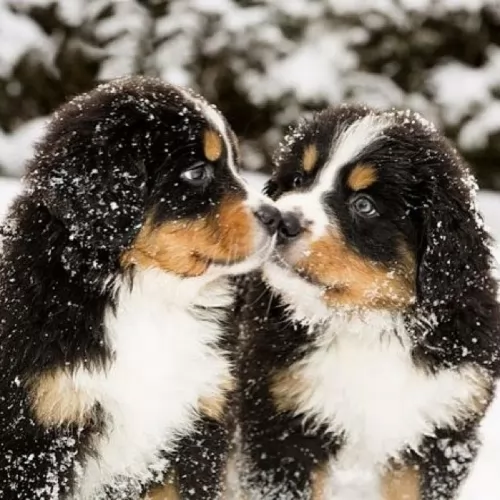 The kind of health issues that most large or giant dogs have to deal with are some of the same things that this breed dealt with.
The kind of health issues that most large or giant dogs have to deal with are some of the same things that this breed dealt with.
 When feeding your English Coonhound be aware that this athlete loves to eat. You have to keep him from growing obese as his tendency to overeat is high. He uses a lot of energy on the hunt so if he is a hunting dog perhaps he needs more calories. Be careful when and how you feed him so that he won’t get bloat.
When feeding your English Coonhound be aware that this athlete loves to eat. You have to keep him from growing obese as his tendency to overeat is high. He uses a lot of energy on the hunt so if he is a hunting dog perhaps he needs more calories. Be careful when and how you feed him so that he won’t get bloat.
As previously mentioned the American English Coonhound is a very hearty breed and its most serious issue is Bloat. However, they also have long, floppy ears.
Because they were bred to hunt they need a lot of daily exercise. Jogging, brisk walking, or playing at t dog park are good activities for him. If they don’t get enough energy they become high strung and can engage in destructive behavior. Don’t let them off leash as they might wander off after any scent they capture. They love to chase a ball and you’ll wear out before they do. He might be good at lure chasing.
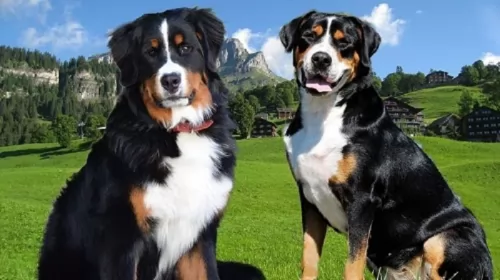 Feed a high quality dog food designed for large or giant puppies. Feed 3times a day 2.5 times for puppies and go easy on the treats
Feed a high quality dog food designed for large or giant puppies. Feed 3times a day 2.5 times for puppies and go easy on the treats
There is a definite tendency for these dogs to become obese. Don’t overfeed. Don’t free feed. Large breed high quality dog food should be fed 2 times a day and go easy on the treats. Watch his weight.
strength, stamina
The breed is definitely athletic and active. They love to chase and take long walks daily. They need a large yard but be careful as they can climb trees and your fence. They are great companions when backpacking and camping. If there are skunks in the area however watch out! These are hunting dogs despite their size and they would do very well in barn hunt and field trials.